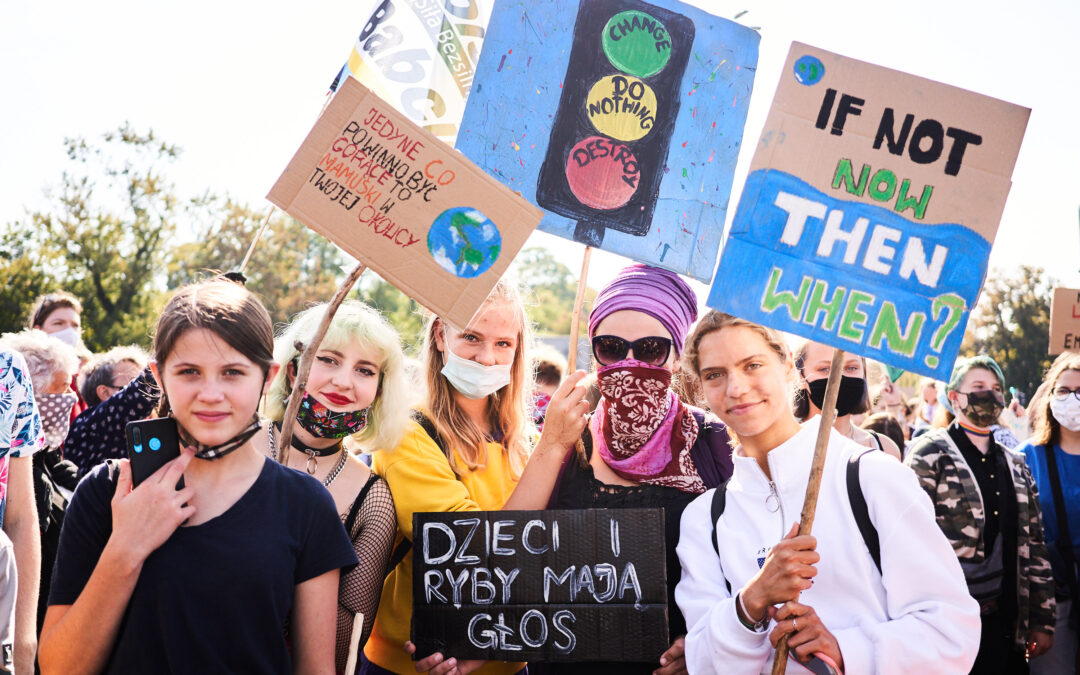Poland is one of five member states that are “blocking the EU electricity transition” towards the European Commission’s recommendation of reducing emissions by 55% from 1990 levels by 2030, a report has found.
Belgium, Bulgaria, the Czech Republic, Poland and Romania have shown “limited or no progress” towards reducing emissions in their power sectors over the coming decade, notes climate think tank Ember.
Its analysis – based on the National Energy and Climate Plans (NECPs) submitted by all member states – also identifies Germany and Italy as making only “slow progress” towards reducing emissions, which the think tank calls “a concern”.
Poland will in 2030 have the dirtiest electricity production out of the 19 largest EU member states, which together account for over 97% of the bloc’s power consumption. The country currently relies on coal for around 73% of its energy production, the highest level in the bloc.
Germany will have the EU's 4th most carbon intensive electricity grid by 2030, according to research out today by @EmberClimate. https://t.co/m3WvBB9g1w
A reality check on the 'Green Germany' reputation the country & 'Climate Chancellor' Merkel have projected internationally pic.twitter.com/657SxgeU3K
— Adam Vaughan (@adamvaughan_uk) November 9, 2020
Poland is the only member state not to have signed up to the EU’s target of reaching reaching climate neutrality by 2050, arguing that it needs more generous funding to facilitate its transition away from coal.
From its analysis of the NECPs, which were submitted before the pandemic began to impact Europe, Ember found that coal – the most carbon intensive fossil fuel – will still account for over a third of total electricity production in Bulgaria, Czechia and Poland by 2030.
In Poland, coal is forecast to make up over 55% of its energy mix by 2030, and all fossil fuels almost 70%. That will make it one of only two major countries – the other being Belgium, which relies heavily on gas – that will use fossil fuels to produce more than half their electricity.
By 2030, around 90% of all electricity generation from coal in the EU is expected to come from Germany, Poland and the Czech Republic. Those three countries will account for 70% of the bloc’s total power sector emissions.
« What do National Energy and Climate Plans tell us about the EU power sector in 2030? » 🇪🇺
À lire pr décortiquer les politiques énergétiques de l’UE, la disparité des impacts climat et les leviers, notamment ENR…💡⤵️https://t.co/Rau1DJSqN7 pic.twitter.com/wLjGWmH2Qv
— Maud Bregeon (@MaudBregeon) November 11, 2020
“Poland’s NECP lacks ambitions on climate and energy targets in terms of development of renewables, measures to increase energy efficiency and GHG (greenhouse gas) reductions target,” Aleksandra Gawlikowska-Fyk, of the Forum Energii think tank, told Notes from Poland.
“Without significant transition efforts, Poland will remain heavily dependent on coal,” added Gawlikowska-Fyk. “This will be detrimental to the Polish energy sector, leaving the prices highly correlated with CO2 prices, which are expected to rise.”
The rising costs of coal-generated energy – thanks in large part to the EU emissions trading scheme – has already been felt in Poland. At the start of this year, the government promised to compensate “each Polish family” for rising costs, blaming European climate policies.
In the meantime, however, the government has been taking steps towards reducing the country’s reliance on coal. A new energy strategy unveiled in September included more ambitious targets, which would be accelerated in the case of high EU carbon emission prices.
Last month, the government reached an agreement with powerful miners’ unions for Poland’s coal mines to be closed by 2049. It aims to begin construction of Poland’s first nuclear power plant in 2026.
There have also been efforts to encourage greener forms of energy, including subsidies for solar panels, plans to increase offshore wind energy, and the rolling back of restrictions on constructing onshore wind farms.
Much of the turn towards renewables has, however, been driven by the private sector and prosumer firms, which were responsible for 81% of all renewable power installed in 2013-2019.
The country’s steps towards renewables such as wind and solar are, though, still insufficient, Ember’s analysis found. If the EU is to meet the goal of reducing greenhouse gas emissions by 55%, annual deployment of wind and solar needs to be raised by a third across the bloc in the coming decade.
Main image credit: Greenpeace Polska/Flickr (under CC BY-ND 2.0)
Kate Martyr is a German-based British freelance journalist contributing mainly to Deutsche Welle, covering social issues and breaking news.




















